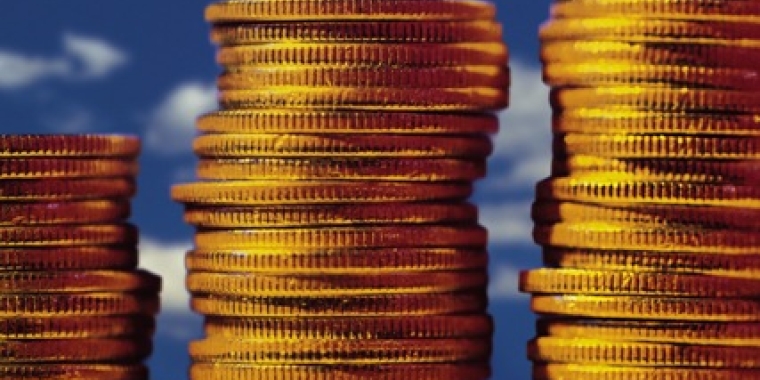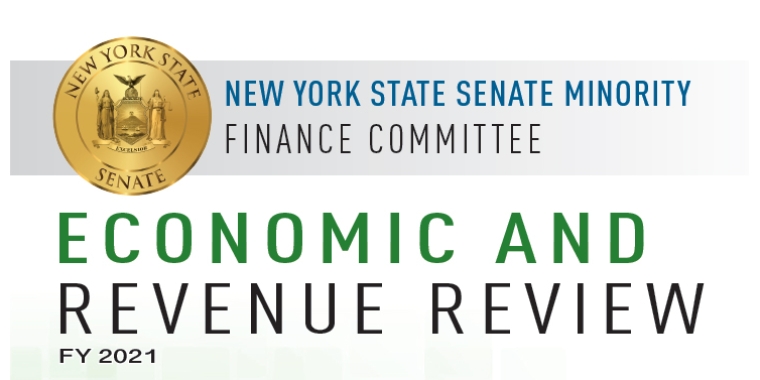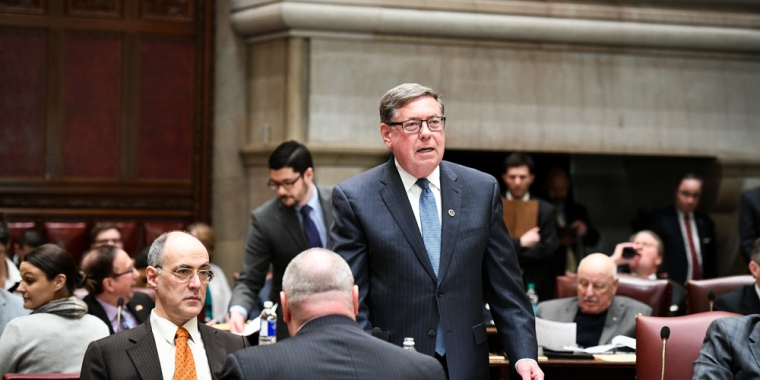
Course Correction Needed For State Finances
James L. Seward
August 6, 2009
-
ISSUE:
- Finance

The New York State Division of the Budget recently released its first quarter update to the state financial plan. The update includes revised information on state revenues, spending and other financial indicators. Unfortunately, the report did not include a rainbow and a pot of gold.
Based on operating results through the first three months of the fiscal year and updated economic projections that indicate continuing weakness in the overall economy, New York is staring at a current year deficit of $2.1 billion dollars. The shortfall will balloon to $4.6 billion in 2010-11. While this news is certainly disconcerting, it cannot be considered shocking.
When the governor released his original budget proposal earlier this year I knew we were in for a difficult stretch. The plan called for $4 billion in new taxes and fees to support a 1 percent increase in spending. At the time I very plainly stated my dismay and called for spending cuts and tax cuts.
From that point the process went further downhill. The governor huddled in secret with his fellow New York City politicians to produce a budget that increased spending by a whopping $12 billion. In order to pay for the skyrocketing spending, the final budget included $8.5 billion in new taxes, translating to a cost of $2,400 a year for a family of four.
I fought this budget and joined my senate Republican colleagues in sponsoring a number of amendments aimed at bringing the out of control spending in line. The proposed amendments would have also eliminated new taxes and fees, banned unfunded mandates placed on our schools and local governments, and included job creating incentives to rev up our economy. Not one single Democrat supported the amendments.
The governor also made liberal use of federal stimulus money. An unprecedented spending spree, fueled by billions of dollars from Washington, will only make it more difficult for New York to recover from the current recession. I understand there were strings attached to the money and certain expenditures were required. But this was also an opportunity to restore our financial footing and prepare for the future without tax increases. An opportunity those in power failed to seize.
Now, some tough decisions will have to be made to bring New York’s fiscal house in order. Among the first items to consider – a real spending cap that will force Albany to live within its means. A cap will forge the path for a more manageable deficit, healthier reserves and a real and sustainable recovery. Families are forced to do without during lean times; state government must learn to do the same.
We must focus on economic development. One of the most glaring omissions from the governor’s budget was any attempt at helping our small businesses grow. We need to rev up the economy in order to grow our way out of the current downturn. Putting people back to work will alleviate the strain on government services and translate to higher tax receipts, two keys in cutting our state deficit.
Our dairy farmers must also be a top priority. I have called for emergency funding to assist those struggling with low milk prices, not only to preserve our family farms, but also to sustain the many agriculture related businesses that are the backbone of the upstate economy.
Finally, we must provide property tax relief to struggling homeowners and seniors who are fighting to make ends meet and keep their homes.
I stand ready to work with the governor and legislative leaders to make the difficult choices necessary to maintain a balanced budget so we can protect taxpayers who have already been asked to sacrifice too much.
The governor now says he doesn’t want to raise taxes and fees to close the budget deficit. I certainly hope he means what he says this time. New Yorkers, who are sick of paying more in property and other taxes, hope he means it as well.
Share this Article or Press Release
Newsroom
Go to NewsroomSenate Republicans Unveil COVID-19 Action Plan
March 20, 2020

New York State Coronavirus Resources Available
March 18, 2020

ECONOMIC AND REVENUE REVIEW FY2021
February 27, 2020

